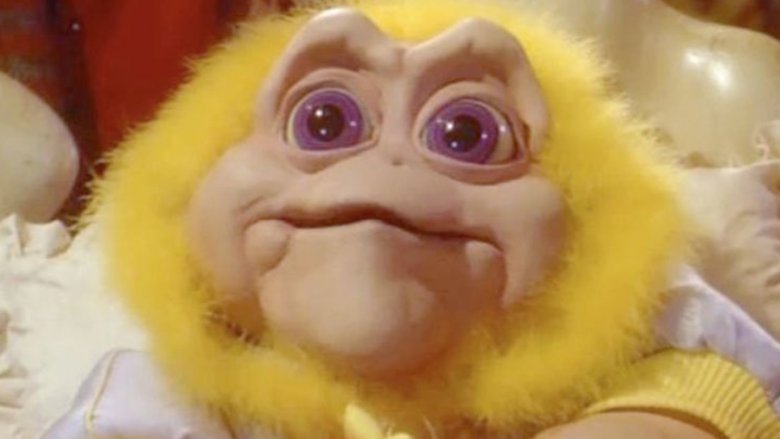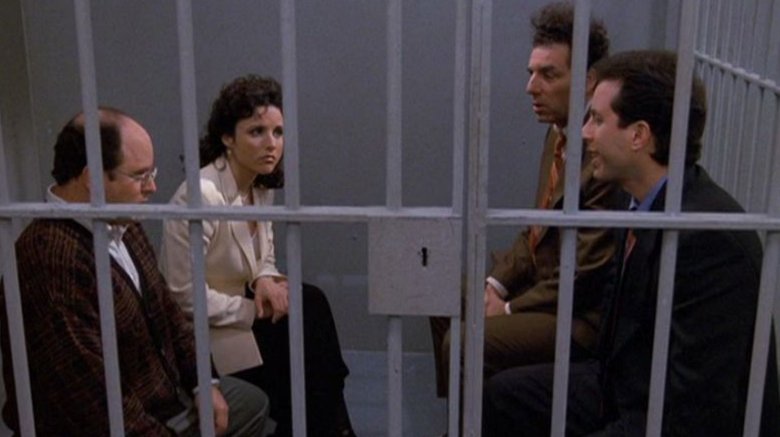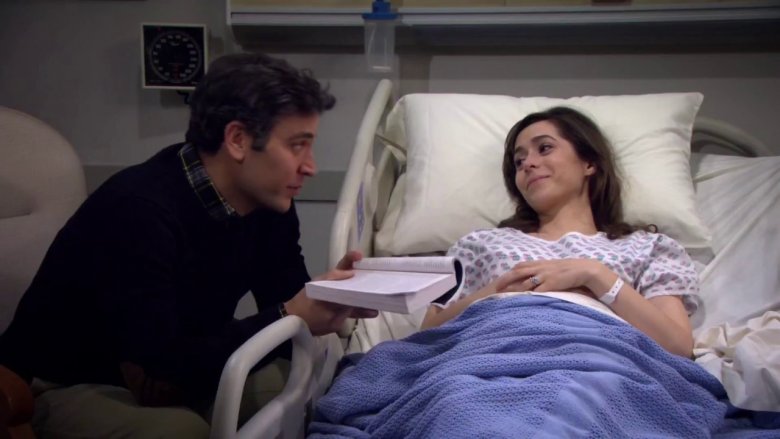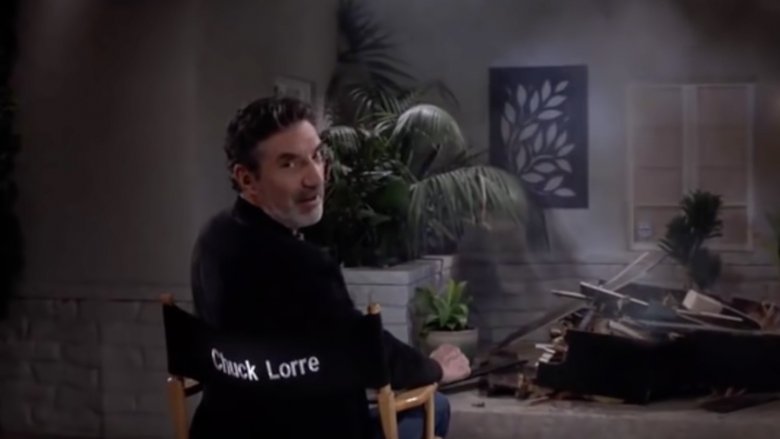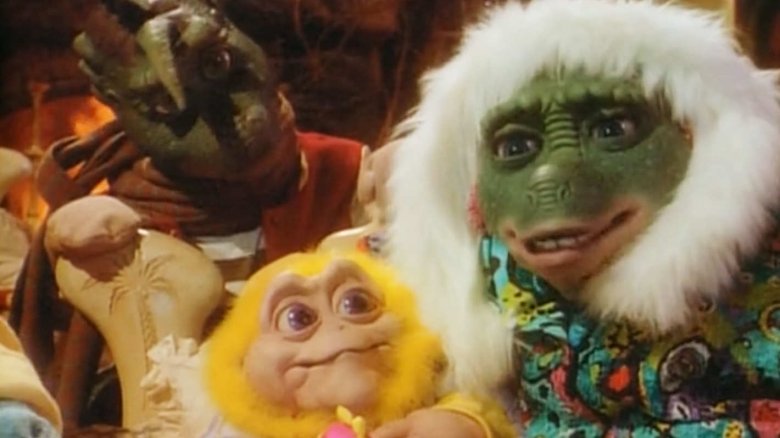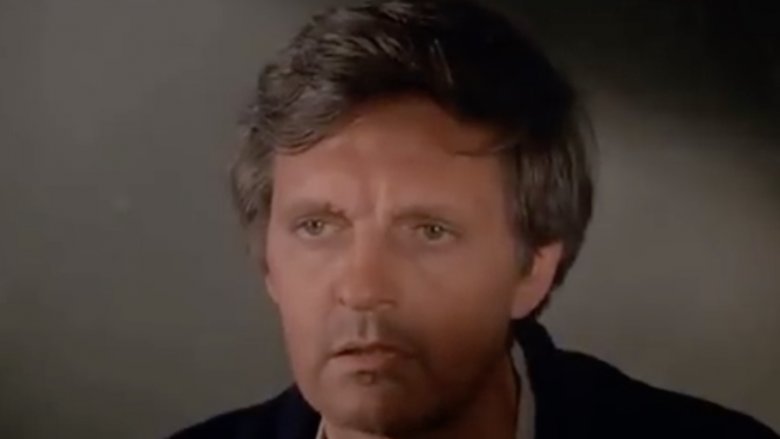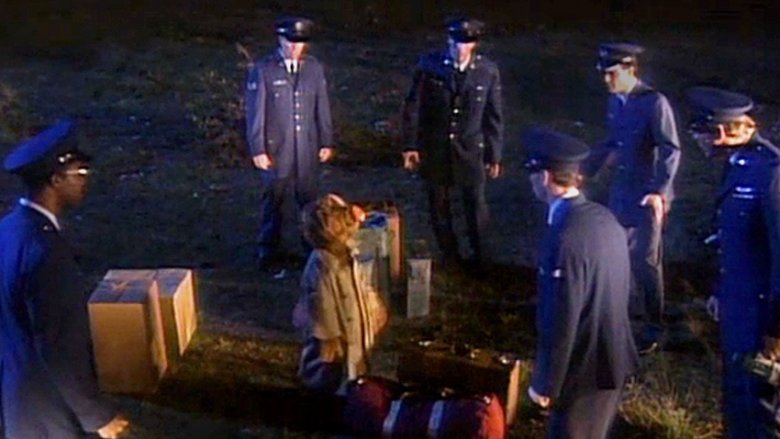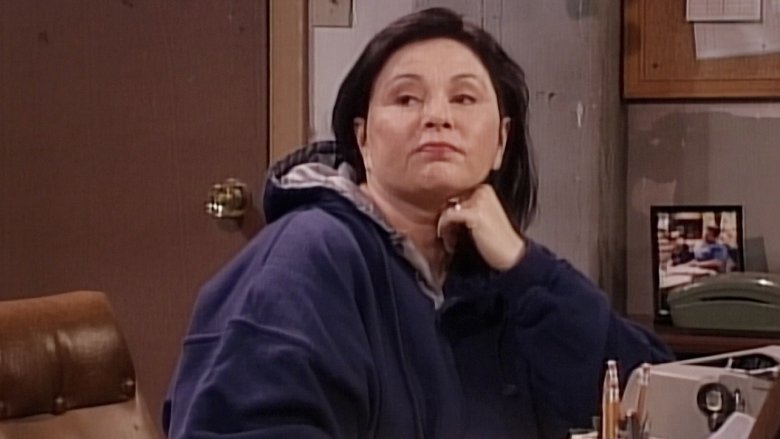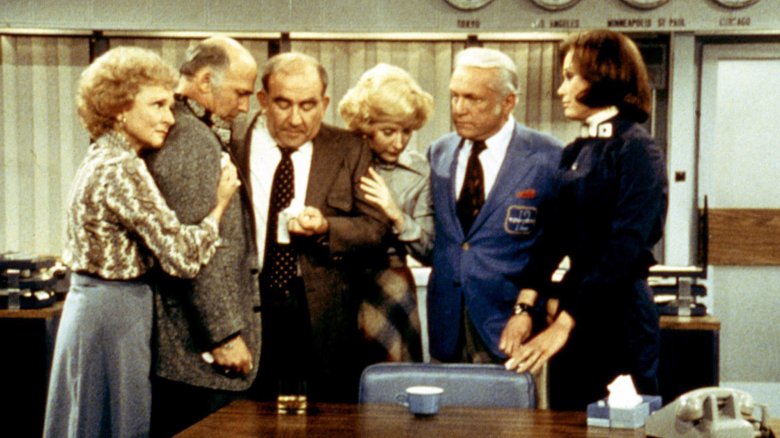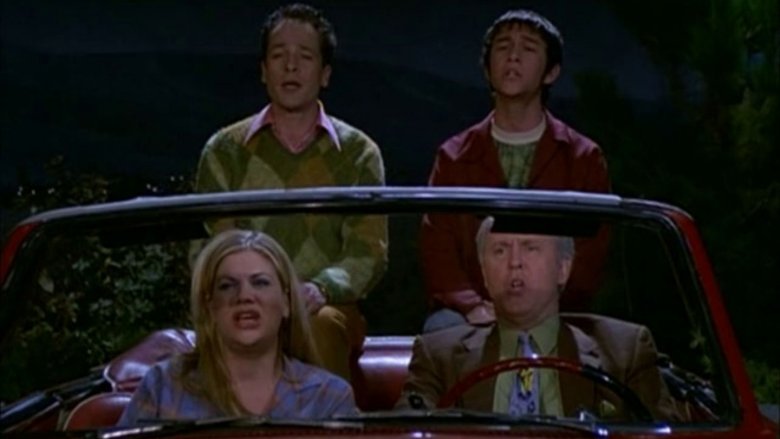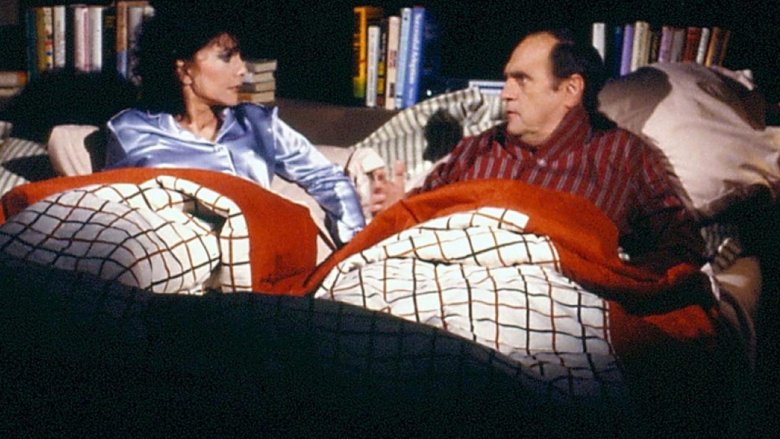Surprisingly Dark TV Sitcom Finales
It seems like at the end of almost every TV season, a long-running, top-rated sitcom ends its many years on the air with a massively hyped, plot-packed series finale. Tens of millions tune in to say goodbye with that big "last episode."
More often than not, beloved sitcoms finish out with a finale that fits into one of a few established archetypes. For example: the "will they or won't they couple" finally gets together, one or more of the main characters move away, somebody gets married, somebody has a baby, etc. — in other words, major life events that wrap up the show with an eye to the future and tears in the viewers' eyes.
But not all big sitcom finales end in such an emotional, chapter-closing fashion. TV history boasts some exceptions to the rule, shows that bravely and boldly went against the norm by going dark. Here are some of the most surprisingly twisted final TV comedy episodes of all time.
No hugs, no learning until the extremely bitter end
Seinfeld was never a sticky-sweet, feel-good sitcom. It was so different from other sitcoms on TV during its 1989 to 1998 run — Jerry (Jerry Seinfeld) knocking down an old woman to steal a marble rye, or George (Jason Alexander) being so cheap that the glue on the inexpensive wedding invitation envelopes he buys poisons his fiancée to death made the show seem gleefully evil or at least nihilistic when put up next to stuff like Who's the Boss? or Mad About You.
All the selfish and thoughtless deeds committed by Jerry, George, Elaine (Julia Louis-Dreyfus), and Kramer (Michael Richards) over the years caught up with them. In the hotly anticipated series finale, which brought in about 76 million viewers, the gang nearly endures a plane crash, only for the jet to land safely in a small Massachusetts town. While there, they witness a crime firsthand... and make jokes about the victim while it's happening. The man (John Pinette) mentions this while filing his report with police, who arrest the Seinfeld four for violating a "Good Samaritan" law. A slew of Seinfeld guest stars and recurring characters file through as character witnesses at the ensuing trial, confirming that the group audiences loved turning in to see every week all those years were bad people. The show ends with the central four locked up in prison, having learned nothing at all.
How I met your mother who then immediately died
To be fair, the 2005–2014 sitcom was titled How I Met Your Mother and not How I Spent Many Years With Your Mother. For eight years, Ted Mosby (Josh Radnor) trying to meet the mother of his two teenage children (to whom he is narrating the story in the year 2030) was a narrative device to frame his adventures catting around New York City with his friends. Every woman Ted dated could have feasibly been the mother, only they'd break up and wind up as red herrings. The only real contender: Close friend and off-and-on girlfriend Robin (Cobie Smulders), a main character on the show.
Then the ninth season switched things up considerably. The entire run of episodes — save the series finale — takes place over the course of the weekend leading up to Robin's wedding to Barney (Neil Patrick Harris). Viewers finally find out that Ted lived happily ever after with "The Mother," Tracy (Cristin Milioti)... up until she died of an illness in 2024. The series finishes up with middle-aged Ted rekindling his romance with Robin, who divorced Barney after three years of marriage. Death and divorce. What fun!
Two and a Half Men vs. 88 keys
Two and a Half Men nearly imploded in early 2011 when a public feud developed between star Charlie Sheen and showrunner Chuck Lorre. Sheen, a known partier, reportedly went on a three-day cocaine bender which landed him in the hospital and temporarily halted production on Two and a Half Men. Sheen chafed at his employers' attempts to get him help — he claimed to be "winning" at life because of the "tiger blood" that ran through his veins, and then lashed out at Lorre. Sheen told TMZ that he "violently hated Lorre," who he called "a stupid, stupid little man." Before long, CBS and Warner Bros. TV shut down production on Two and a Half Men for the rest of the season.
Sheen was finally fired in March 2011, although the show continued with Ashton Kutcher coming on board to fill the hole in the cast. Two and a Half Men wrapped up in 2015. Was the Sheen stuff just water under the bridge by then? Nope. Lorre took the opportunity of the show's big finale to get the last word. In the final moments of the show, a guy who looked like Sheen showed up... and then a piano fell on him. At that point, the camera panned to Lorre, who took a page from his former star, quipping, "Winning."
The saddest ending in (pre) history
Dinosaurs ran on ABC from 1991 to 1994, combining puppets and animatronics to create a satirical, Simpsons-like series centered around the Sinclairs, a middle-class family of dinosaurs living in a prehistoric Pangea that bore a striking cultural resemblance to '90s America. Dinosaurs is probably best remembered for the character of Baby Sinclair (voice of Kevin Clash), who screeched "Not the Mama!" at his father, Earl Sinclair (voice of Stuart Pankin), who worked a blue collar job as a "tree pusher" for an all-powerful corporation called WESAYSO. This cute and amusing family comedy ambitiously concluded with a mass extinction event that not only signaled the end for Dinosaurs, but for all dinosaurs.
In the finale, the entire Pangean ecosystem gets destroyed because a plastic fruit factory is constructed on top of the natural breeding ground of a beetle that kept an invasive and aggressive plant species under control. With no beetles left, the plants grow unchecked. Earl's employer puts him on a task force to come up with a solution to the problem. The group decides to spray the planet with toxic chemicals...which wipes out all plant life. The task's force idea to make plants grow again by dropping bombs into volcanoes to create rain clouds works too well, triggering snow and a subsequent Ice Age. The episode ends with the family holed up in their house trying to stay warm and stave off their imminent deaths. Goodnight, kids!
Goodnight, farewell, and oh man
The Korean War-set comedy/drama M*A*S*H finished its 11-year run with an extra-long episode titled "Goodnight, Farewell, and Amen." More than 106 million people tuned in to see how M*A*S*H ended in 1983, and that broadcast is still the most-watched scripted program in American TV history. There are a lot of laughs, a lot of tears... and more of the gut punches about the many horrors of war that the show famously wove into the comedy over the years.
While peace negotiations are underway, Hawkeye Pierce (Alan Alda) sits in a therapy session, remembering being on a bus with a Korean refugee woman carrying an annoying chicken that wouldn't stop squawking. Hawkeye angrily ordered the fearful woman to shut up the bird, which she did by snapping its neck. With the help of his therapist, he uncovers a repressed memory — it wasn't a bird, it was the woman's baby, and she smothered it out of fear. That's about the darkest place a sitcom could or would ever go.
The rest of the episode plays out with a long-awaited ceasefire finally declared, and the military personnel saying goodbye, making what they know will likely be empty and unfulfilled promises to see each other when they all get re-settled in the States. The lyrics to the M*A*S*H theme song famously argued that "suicide is painless." The show's finale? Not so much.
ALF loved cats, not so much being a government test subject
A huge hit during its 1986 to 1990 run, ALF was a weird show about a sassy alien who crash-landed in a suburban garage, loved to eat cats, lazed around the house all day watching TV and eating junk food, and told tales about his bizarre life on his home planet of Melmac. It was also a standard sitcom with a "hide the outsider" premise — the world couldn't know about ALF (short for "alien life form") the same way that nobody could know Jeanie from I Dream of Jeannie was a genie.
There were really only two ways that ALF could end. In one scenario, his identity is exposed and he becomes an international celebrity, both for his winning personality and because he's living proof of extraterrestrial life. Or his identity is exposed and the government, which ALF and his host family have long feared and actively avoided, comes to collect the alien and take him away to a secret, scary research facility. As this was a family sitcom, one would think option 1 would be the way to go. Nope — it ended with ALF whisked away to an undisclosed location, where he presumably endured all manner of pain and torture. Patient fans had to wait until 1996's Project ALF TV movie to learn he survived.
When Roseanne hit the finale jackpot
When Roseanne debuted in 1988, it offered something that there wasn't much of on TV at the time: stories about people who lived in the Midwest and faced economic hardship. Over the first eight seasons of the show, Conner spouses Roseanne (Roseanne Barr) and Dan (John Goodman) struggled to keep their family financially afloat, working various low-paying, low-prestige jobs, and often facing layoffs and firings. But all of those problems — the relatable ones that made Roseanne such a smash hit in the first place — fell away at the beginning of season 9, when the Conners won more than $100 million in a lottery jackpot. Then, not long after possibly torpedoing all of its credibility, Roseanne undid it all with its May 1997 finale, which ends with Roseanne sitting at the kitchen table working on a book — a book that, it turns out, was the entire series seen by viewers, based on Roseanne's life, with some creative liberties. For example, in her "real life," Dan died of the heart attack he'd suffered at Darlene's wedding in season 8. Of course, all that was subsequently undone when Roseanne briefly returned to ABC in the spring of 2018.
They didn't make it after all
The Mary Tyler Moore Show was revolutionary: It was one of the first shows about an unmarried woman, living on her own in a large American city (Minneapolis), focused on her career (as a TV journalist) and friends rather than romance. While the title would indicate that it was designed as a vehicle for Dick Van Dyke Show breakout star Mary Tyler Moore, the series bearing her name quickly became an ensemble show because of all the great characters and the great actors who played them, including grumpy news producer Lou Grant (Edward Asner), whip-smart news writer Murray Slaughter (Gavin MacLeod), and news anchor Ted Baxter (Ted Knight), the dumbest and most arrogant man on television. After seven award-winning seasons, The Mary Tyler Moore Show ended in 1977. The plot: A new station manager of WJM-TV wants to boost the station's news ratings and fires pretty much everybody... except for Ted Baxter, the most incompetent employee.
A sucker punch from 3rd Rock from the Sun
3rd Rock from the Sun is one of the silliest sitcoms ever, thanks in part to John Lithgow's hilariously arrogant portrayal of "Dick Solomon," leader of a four-person crew of aliens posing as a human family in Ohio to learn about earthling ways. The show ran for six seasons on NBC as Dick, along with fake teenager Tommy (Joseph Gordon-Levitt), dimbulb Harry (French Stewart), and security officer Sally (Kristen Johnson) rarely took a break in the wackiness to be sentimental. But the final chunk of 3rd Rock episodes in the spring 2001 were chock full of raw emotion (and silliness).
After Dick defeats a rival alien named Liam Neesam (John Cleese) by turning him into a chimpanzee, his human girlfriend, Mary (Jane Curtin) necessarily fears and distrusts him, forcing Dick to admit that he's an alien, too. Meanwhile, Neesam complains about Harry's actions to their alien boss, the Big Giant Head, who gets so mad he orders Dick and crew to return home immediately. The "family" sadly accepts their fate, except for Dick, who asks Mary to come to space with him. She agrees, but backs out at the last minute. Dick has no choice but to wipe her brain of memories of him... by clocking her, hard. Then the aliens get beamed up back into space. End of wacky sitcom.
None of them were ever even there
Bob Newhart hit it big as a stand-up comedian in the late 1950s with a uniquely dry, quiet, and stoic style. That translated nicely to sitcoms, first with The Bob Newhart Show (1972-1978) and then Newhart (1982-1990). In both, Newhart played the "straight man" to a cast of quirky folks — as a psychologist in the first series, then as the operator of a small-town Vermont inn. Newhart was a sharp, well-written series that mined comedy from its oddball tertiary characters like handyman George Utley and local yokels Larry, his brother Darryl, and his other brother Darryl. Things didn't monumentally change over the course of Newhart, which must have made it a challenge for writers to find a way to succinctly end a series that could've gone on forever. This may explain the bizarre finale they came up with: the town is bought up by Japanese investors, who turn it into a golf resort that surrounds the holdout Stratford Inn. One morning while fetching the paper, Dick Loudon (Newhart) gets whacked in the head with a golf ball. It knocks him out... but as it turns out, he was already asleep. The episode — and the series — ends with him waking up in his bed on the old Bob Newhart Show set, in character as psychologist Bob Hartley, next to his wife Emily (Suzanne Pleshette). The whole Newhart show had been a dream — absolutely none of it had existed or mattered. That's just glib darkness.
